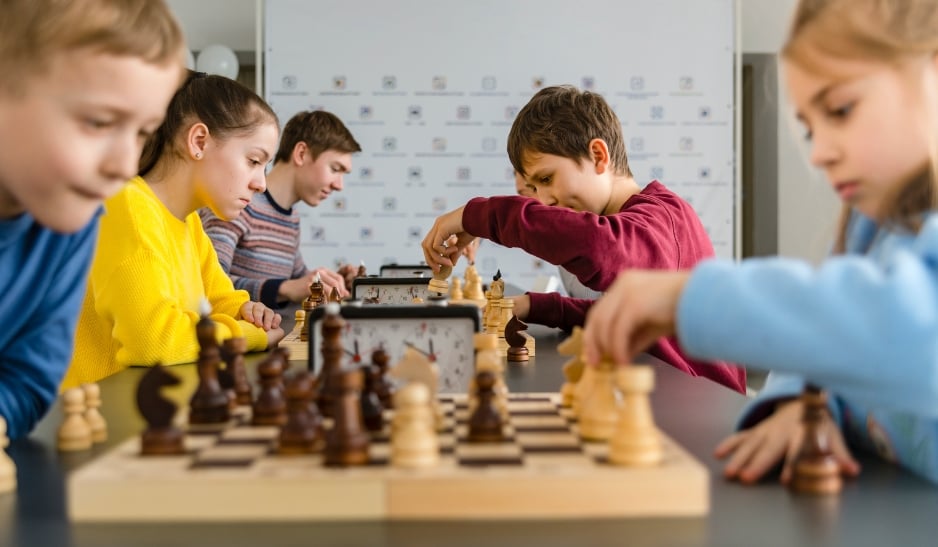5 Engaging After School Activities to Foster Critical Thinking

5 Engaging After School Activities to Foster Critical Thinking
In an era where information is at everyone's fingertips, the ability to think critically is of paramount importance. Critical thinking skills enable children to navigate through vast amounts of data, identify valid sources, and interpret this information effectively. These skills are crucial in an age of digital literacy, where students must discern between credible sources and 'fake news'. They help young minds evaluate evidence, understand logical connections, identify arguments, and systematically solve problems. It's not just about being able to analyze and evaluate, but also about making decisions and solving problems effectively.
After-school activities can play a crucial role in fostering these valuable skills. They provide an engaging platform outside of the typical classroom setting where students can explore, engage, and challenge their minds in different ways. They offer diverse opportunities to think critically and creatively, apply knowledge and skills to real-world situations, and collaborate with peers. They stimulate curiosity and encourage students to question, to seek knowledge, and to learn independently. By complementing traditional academic learning, after-school activities can enhance critical thinking skills, boosting children's overall cognitive and personal development.
Benefits of After School Activities in Developing Critical Thinking
After-school activities offer an invaluable contribution to the enhancement of critical thinking skills. They serve as an extension of classroom learning, allowing students to immerse themselves in practical and dynamic environments. Here, they are able to grapple with real-life situations that require creative problem-solving, decision-making, and analytical reasoning. They move beyond the confines of textbook learning, engaging in activities that bring concepts to life, and demand a deeper understanding and application of knowledge.
In addition, after-school activities often promote collaboration, negotiation, and communication among students. Whether they are strategizing moves in a chess club, preparing counter arguments for a debate, or collaborating on a science project, students are exposed to diverse perspectives. They learn to respect different viewpoints, to negotiate, and to reach consensus, all of which are central elements of critical thinking. As they interact, they develop the ability to analyze their own thought processes, reflect on their actions, and accept constructive feedback. The amalgamation of these experiences nurtures their cognitive development, enriching their critical thinking abilities.
5 Engaging After School Activities
1. Chess Club
The game of chess has long been hailed for its ability to bolster strategic thinking. Its complex structure and competitive nature provide a fertile ground for developing critical thinking skills.
- Strategic Planning: Chess involves careful planning and foresight. Players must anticipate potential moves by the opponent, developing the ability to think ahead and strategize effectively.
- Decision Making Under Pressure: With each move having significant implications, players often face pressure to make the right decision, fostering their ability to perform under stress.
- Learning from Mistakes: Losses in chess serve as opportunities for learning. Players analyze their games to understand their mistakes, encouraging self-reflection and continuous improvement.
Participation in a Chess Club offers students a practical and enjoyable way to refine their critical thinking skills. It encourages strategic planning, decision making under pressure, problem-solving, and learning from mistakes, making it an ideal after-school activity to cultivate these essential cognitive abilities.
2. Debate Team
The art of debate inherently requires strong critical thinking skills. Participating in a debate team offers students a structured environment to hone these skills while engaging in dynamic intellectual discourse.
- Construction of Logical Arguments: Debate demands the construction and presentation of logical arguments. Debaters learn to link their points coherently, fostering logical thinking.
- Evaluation of Evidence: Debaters must scrutinize evidence and determine its validity. This process improves their analytical skills and ability to discern credible information.
- Anticipation and Rebuttal: Successful debaters not only understand their own arguments but also anticipate counterarguments. They learn to think from different perspectives, enhancing their cognitive flexibility.
- Quick Thinking: Debaters often have to think on their feet and respond to opposing arguments quickly, which enhances their ability to think and react promptly.
Joining a Debate Team provides an engaging platform for students to develop their critical thinking skills. It encourages logical argument construction, evidence evaluation, anticipation of counterarguments, and quick thinking. Through this dynamic and intellectual exercise, students gain valuable experience in analyzing, evaluating, and constructing arguments.
3. Science and Engineering Clubs
Science and Engineering clubs provide a hands-on learning environment where students can apply scientific principles to real-world problems. These clubs stimulate curiosity and offer numerous opportunities for creative problem-solving and critical thinking.
- Application of Scientific Principles: In these clubs, students learn to apply theoretical scientific concepts to practical situations. This demands a thorough understanding of the principles and fosters critical thinking.
- Creative Problem-Solving: Whether it's building a model rocket or experimenting with chemical reactions, students are constantly challenged to think creatively and solve problems.
- Trial and Error Learning: Science and Engineering clubs often involve experiments where outcomes may not be as predicted. Students learn from their mistakes, improving their ability to analyze and adjust their strategies.
Science and Engineering clubs provide an engaging platform for students to cultivate their critical thinking skills. Through practical applications of scientific principles, creative problem-solving, learning from trial and error, and collaborative work, students enhance their ability to think critically and creatively.
4. Creative Writing and Reading Club
Engaging with literature through the Creative Writing and Reading Club can greatly stimulate critical thinking skills. These clubs offer students a platform to explore various genres, create original works, and engage in thoughtful discussions about literature.
- Creative Expression: Through writing their own stories, students learn to structure their thoughts logically and express their ideas creatively, which are key components of critical thinking.
- Peer Review and Constructive Feedback: Students often share their work with peers and receive feedback, promoting the development of self-reflection and openness to different perspectives.
- Exploring Different Perspectives: Literature often presents diverse viewpoints, encouraging students to understand and empathize with different perspectives, thereby enhancing their cognitive flexibility.
The Creative Writing and Reading Club provides a unique avenue for fostering critical thinking skills. Through interpreting texts, expressing creativity, giving and receiving feedback, and exploring different perspectives, students can significantly enhance their analytical abilities and cognitive flexibility.
5. Coding Club
Coding or programming has become an increasingly relevant skill in our digital age, and it’s not just for aspiring computer scientists. Participating in a Coding Club can significantly enhance students' logical thinking, problem-solving abilities, and attention to detail.
- Problem-Solving: Coding often involves identifying problems and formulating solutions. Students learn to break down complex problems into smaller, more manageable parts, fostering their problem-solving skills.
- Logical Thinking: Successful coding requires careful thought and precision. Students must think logically to create and debug their code, enhancing their logical reasoning abilities.
- Attention to Detail: One tiny mistake in coding can lead to big problems. As students code, they learn the importance of precision and meticulousness.
- Creativity: Despite being highly logical, coding also allows for creativity. Whether students are designing a website or creating a game, they have the freedom to customize and innovate.
Coding Club offers a unique blend of logical and creative challenges that can significantly boost critical thinking skills. Students enhance their problem-solving abilities, logical reasoning, attention to detail, and creativity, making it an ideal activity for fostering critical thinking.
Conclusion
Nurturing critical thinking skills is crucial for our fast-paced, information-rich world. As parents and educators, it's our duty to support and enhance these enriching opportunities that serve as an investment in our children's future. As you navigate the complexities of implementing or expanding these after-school activities, Curacubby can be your invaluable ally. Our versatile and customizable tools can streamline administrative tasks from registration and payment processing to communication, allowing you more time to focus on creating an environment conducive for developing critical thinking skills.









